Manufacturing is the process of transforming raw materials into finished products through a series of specific processes. This process includes various stages such as material processing, shaping, and final product assembly. Manufacturing has been a cornerstone of human civilization and has reached more advanced levels today with the development of fields like mechatronics, mechanical engineering, and overall engineering disciplines.
Mechatronics combines mechanical, electronic, and software engineering to integrate automation and control systems into manufacturing processes. In modern manufacturing systems, mechatronics enables more efficient, faster, and precise production setups. Examples of mechatronics applications include robotic arms, automated production lines, and sensors.
Mechanical engineering plays a crucial role in the manufacturing process. From the processing of raw materials to the design and optimization of production machines, mechanical engineers contribute significantly. These engineers develop methods to ensure smooth operation of production lines, increase efficiency, and minimize energy consumption.
Engineering, in a broader sense, drives the development and application of technologies used in manufacturing. Engineers take on strategic roles in designing, planning, and managing production processes. While mechatronics and mechanical engineering are at the heart of innovations in the manufacturing sector, general engineering principles form the foundation of these systems.

The manufacturing sector is one of the lifelines of the economy. With advancing technology, the methods used in production have become more complex and innovative. Concepts such as 3D printing, artificial intelligence, and smart factories are shaping the future of the manufacturing industry.
In conclusion, the manufacturing sector is at the intersection of fields like mechatronics, mechanical engineering, and general engineering. By combining these disciplines, more efficient, faster, and higher-quality manufacturing processes are being developed. Manufacturing is not just about making a product, but it also represents the significant contributions of technology to human life.
Manufacturing is the process of transforming raw materials into products that meet human needs through a series of specific procedures. This process includes stages such as shaping, processing, and assembling materials. Manufacturing has been one of the most fundamental activities throughout human history, and today, it has become more efficient thanks to advancements in technology and engineering disciplines.
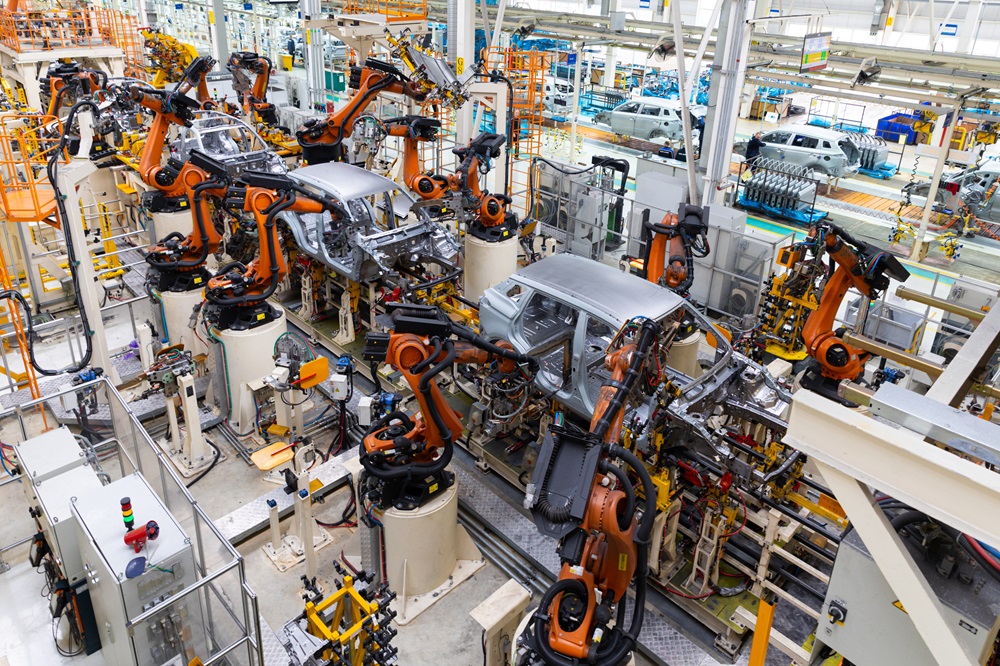
The Manufacturing begins with raw materials, which are transformed through various stages such as processing, shaping, and assembly to create the final product. Each stage is carefully controlled to ensure the quality and functionality of the finished goods.
With advancements in technology, modern manufacturing relies heavily on automation and sophisticated machinery. Robotics, computer-aided design (CAD), and production management software streamline operations, increase efficiency, and reduce human error in production lines.
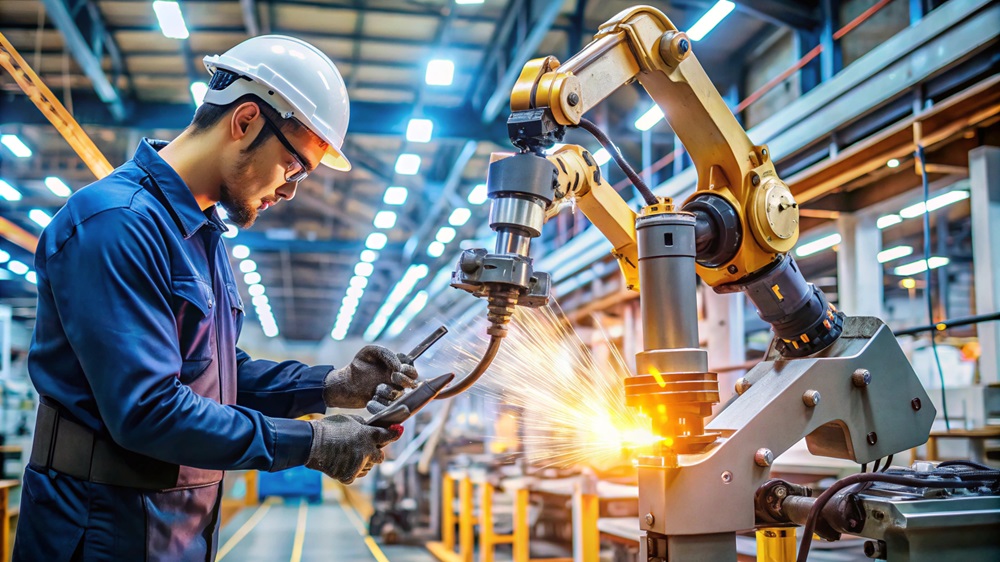
The Industrial Revolution marked a major shift in manufacturing, moving from manual labor to machine-driven production. This transformation significantly increased production capacity, laying the foundation for modern manufacturing techniques used today.
Recent technological innovations, particularly with Industry 4.0, have revolutionized manufacturing. Smart factories, the Internet of Things (IoT), and artificial intelligence (AI) enable real-time data analysis, predictive maintenance, and increased production efficiency, shaping the future of manufacturing.
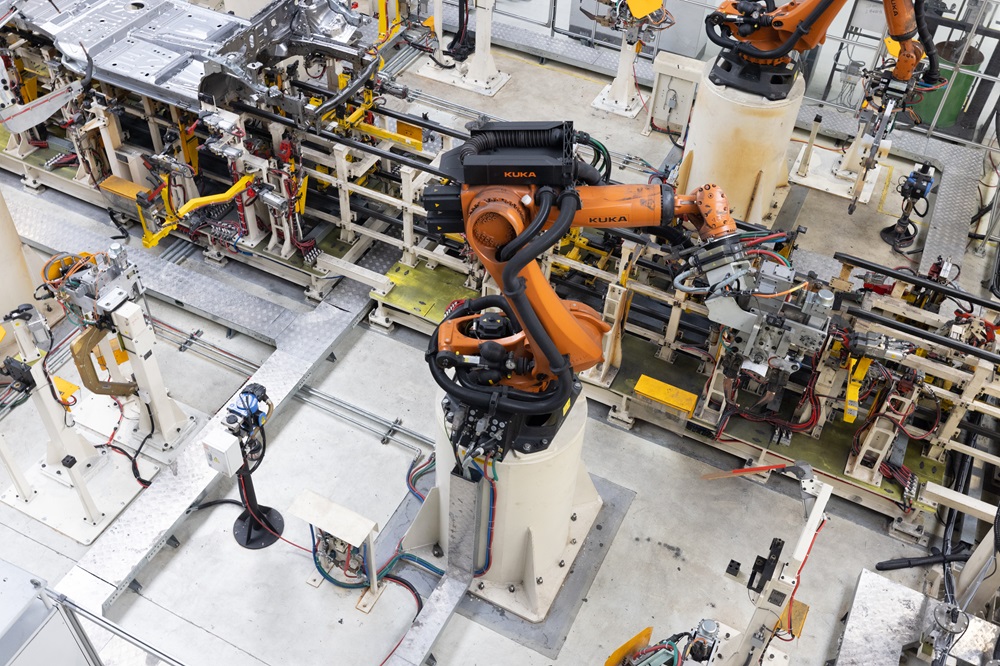
Mechatronics combines mechanical, electronic, software, and control engineering to make modern manufacturing processes more efficient. In manufacturing systems, mechatronics enables faster operations and reduced errors by integrating automation and precise control technologies.
Mechatronics engineering has made the use of robotic systems in manufacturing more widespread, enabling automation. Robots, particularly in repetitive and precision tasks, minimize human error while increasing production speed. These systems allow for continuous and uninterrupted operation on the production line.
Mechatronics facilitates process improvements through the integration of smart machines into production lines. These machines, equipped with sensors and data analytics, provide real-time feedback during production, allowing for early detection and correction of errors. This ultimately increases overall manufacturing efficiency.
Mechatronics engineering plays a critical role in the modern manufacturing world. The automation of manufacturing processes, minimization of errors, and improvement of product quality are all made possible by the expertise of mechatronics engineers. They are responsible for designing production lines and ensuring the continuous improvement of systems, as well as integrating new technologies.
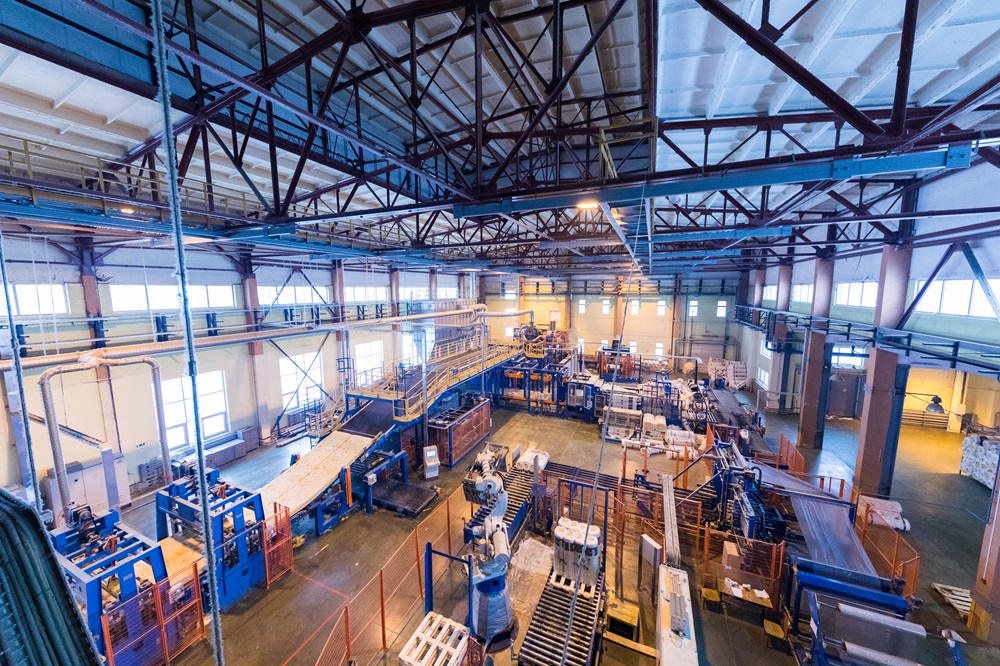
Mechanical engineering plays a key role in the design and development of machines used in manufacturing processes. Mechanical engineers design machines tailored to the needs of production lines, ensuring smooth and efficient operations. This process involves detailed work to optimize the machine's functionality, durability, and energy efficiency.
Mechanical engineers use CAD (Computer-Aided Design) and CAM (Computer-Aided Manufacturing) technologies to speed up the design and production processes. These technologies allow for the precise and faster production of complex parts. By integrating the design and manufacturing stages, CAD/CAM reduces costs and minimizes errors.
Mechanical engineering includes efforts to improve the performance of existing machines and equipment. These improvements aim to make machines operate more efficiently, consume less energy, and require less maintenance. By utilizing innovative technologies, performance improvements in production processes are achieved.
Mechanical engineers develop various applications to ensure the smooth operation of machines on the production line and to increase production capacity. The design, assembly, and maintenance of production lines are critical roles of mechanical engineering in manufacturing.
Mechanical engineering plays a significant role in developing methods to enhance efficiency on production lines. Automation systems, the integration of machines into work processes, and process optimizations increase production speed while reducing costs. These methods contribute to increased production capacity and more efficient use of resources.
Sustainability is one of the most important elements of modern manufacturing processes. Mechanical engineers develop energy-efficient and environmentally friendly machines, minimizing the environmental impact of production. Additionally, by optimizing maintenance processes, they ensure long-term efficiency and support sustainable manufacturing.
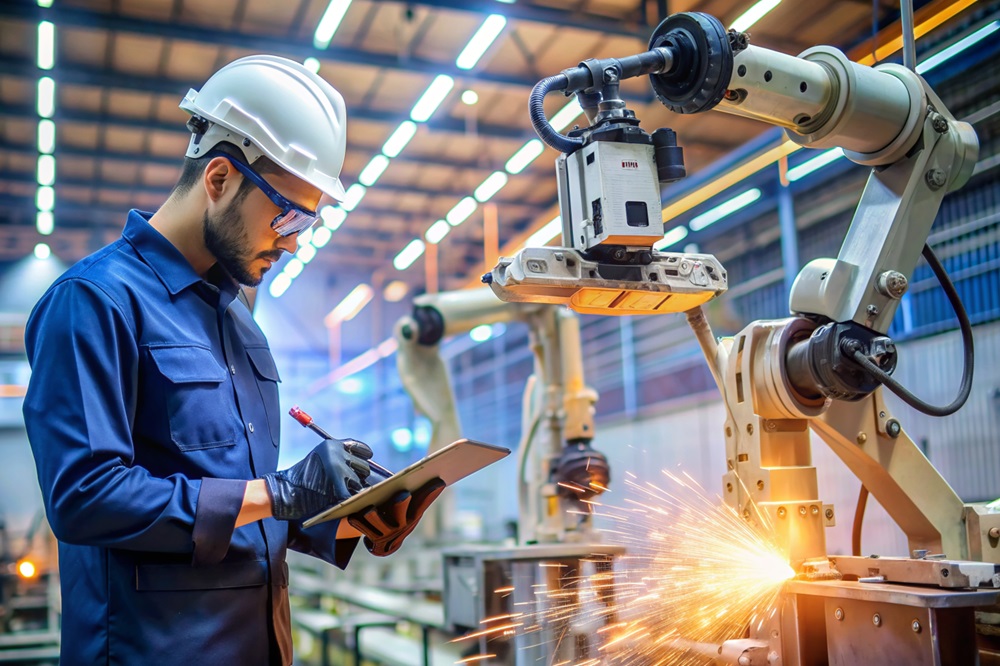
Traditional Manufacturing Methods involve processes such as cutting, casting, and molding, where raw materials are shaped or formed into finished products using manual or mechanical techniques. These methods have been used for centuries and are foundational to many modern production techniques.
Traditional manufacturing methods include techniques such as cutting, casting, and molding. Cutting involves separating materials into desired sizes and shapes, while casting is the process of pouring molten material into molds to cool. Molding shapes materials based on specific molds and has been used for many years as a traditional technique.
Advanced Manufacturing Techniques refer to modern methods like 3D printing, additive manufacturing, CNC machining, and laser cutting, which use cutting-edge technology to create complex products with high precision, efficiency, and customization. These techniques enable faster production and reduce waste compared to traditional methods.
3D printing is an advanced manufacturing technique where materials are added layer by layer to produce products. This technology allows for faster and cost-effective production of complex geometries.
CNC (Computer Numerical Control) technology allows for precise cuts through computer-guided manufacturing machines. Laser cutting provides high precision material cutting, enabling the production of parts with intricate and detailed designs.
Manufacturing and Automation Technologies integrate advanced systems such as robotics, artificial intelligence (AI), and the Internet of Things (IoT) into production processes. These technologies automate tasks, optimize workflows, and increase efficiency by reducing human intervention, enabling real-time monitoring, and improving overall productivity. They are essential in modern manufacturing for enhancing speed, accuracy, and resource management.
The Importance of Automation in Manufacturing lies in its ability to increase efficiency, reduce human error, and lower production costs. Automation streamlines processes, allowing for faster and more accurate production. It also enables 24/7 operation, minimizes waste, and enhances safety by reducing the need for manual labor in hazardous environments. Ultimately, automation improves overall productivity and competitiveness in the manufacturing industry.
Artificial intelligence and robotics technologies automate manufacturing processes, minimizing human error and increasing efficiency. Robots provide high speed and accuracy, especially in repetitive tasks.
Automation optimizes workflows on production lines, increasing production speed and reducing costs. The automation of processes allows for more efficient use of resources.
Industry 4.0 and Smart Factories represent the next phase of industrial production, integrating advanced technologies like the Internet of Things (IoT), artificial intelligence (AI), and big data analytics into manufacturing processes. Smart factories utilize connected machines and systems to enable real-time monitoring, predictive maintenance, and self-optimization. This allows for increased efficiency, flexibility, and productivity, while reducing downtime and errors. Industry 4.0 is revolutionizing traditional manufacturing by creating more intelligent, responsive, and adaptable production environments.
The Internet of Things (IoT) enables machines to work in a connected manner, allowing real-time monitoring of production lines. Anomalies in production processes can be quickly detected and resolved through IoT systems.
Digital twin technology creates a digital replica of a product or process. This allows for simulations in a virtual environment, optimizing manufacturing processes and minimizing errors in the real world.
Quality Control and Inspection in Manufacturing Processes are essential to ensure that products meet required standards and specifications. Quality control involves monitoring and testing production processes to identify defects or inconsistencies, while inspection verifies that the final products conform to set quality criteria. Effective quality control minimizes waste, reduces rework, and ensures customer satisfaction by delivering reliable, high-quality products. These processes are vital for maintaining efficiency and compliance with industry standards like ISO 9001.
Quality management systems like ISO 9001 ensure that manufacturing processes are conducted according to international standards. These systems aim to improve production quality through continuous improvement principles.
Quality inspection checks whether the products produced meet the required standards. Data obtained from these inspections contribute to process improvements, enhancing manufacturing efficiency.